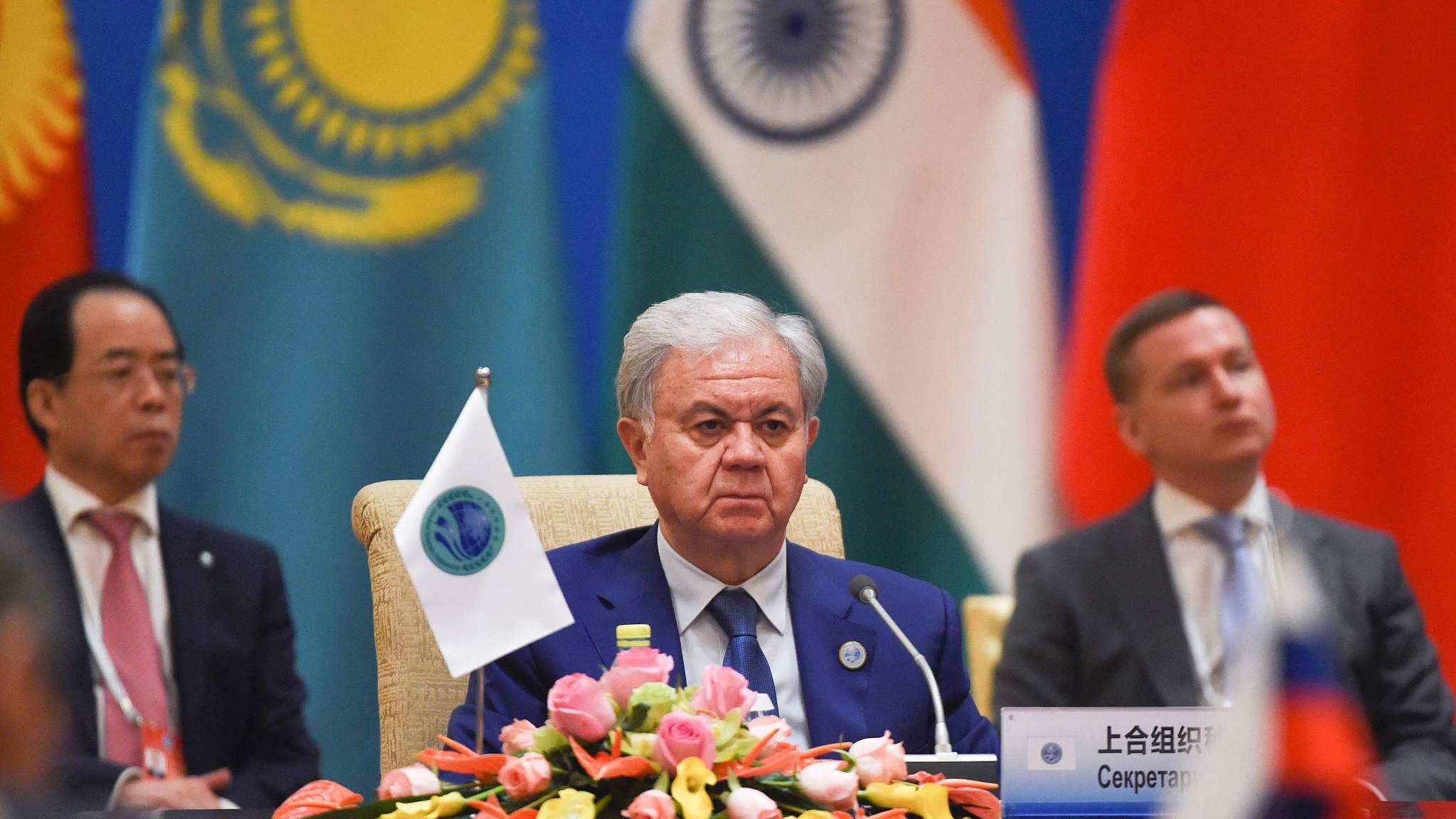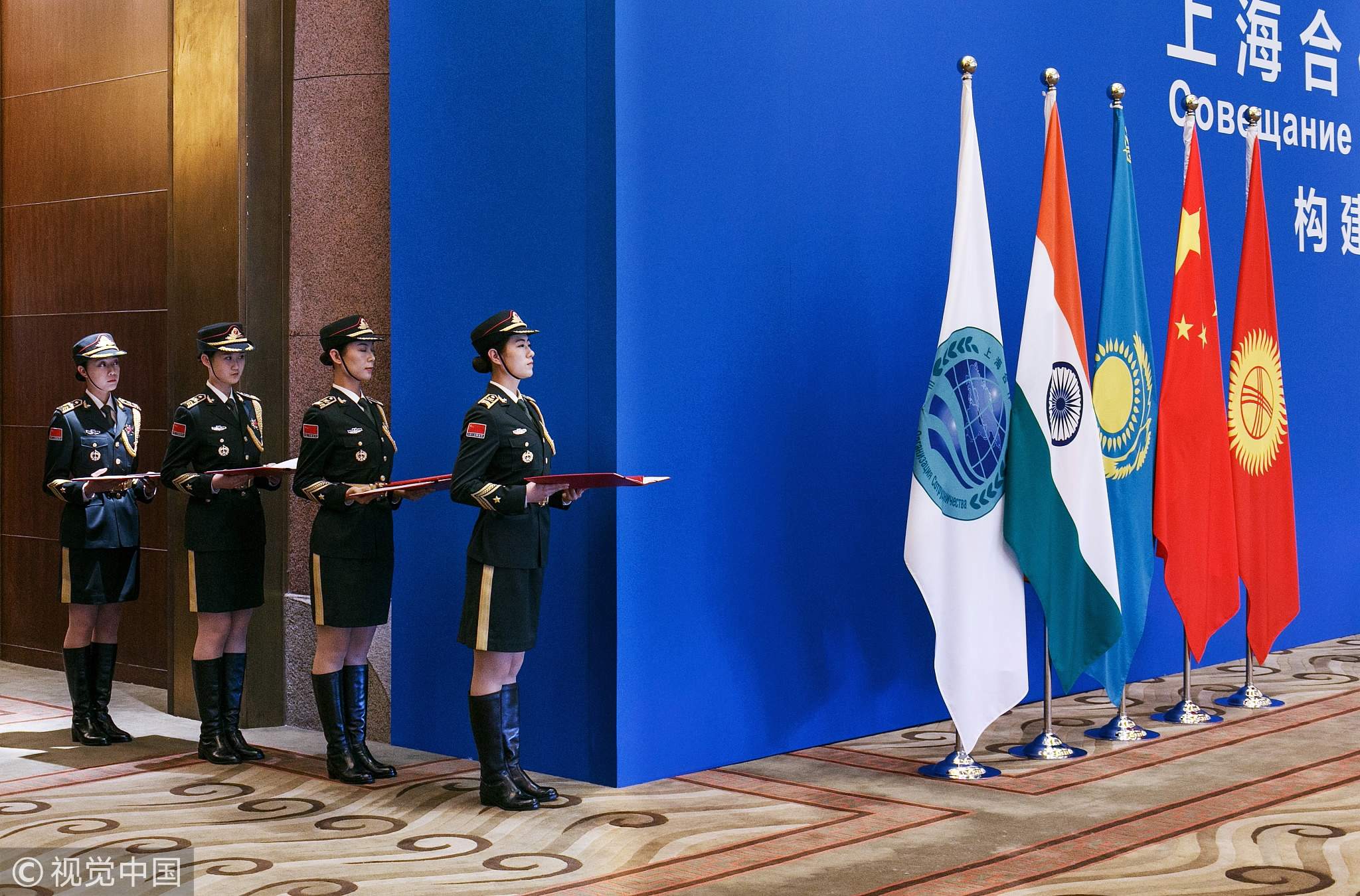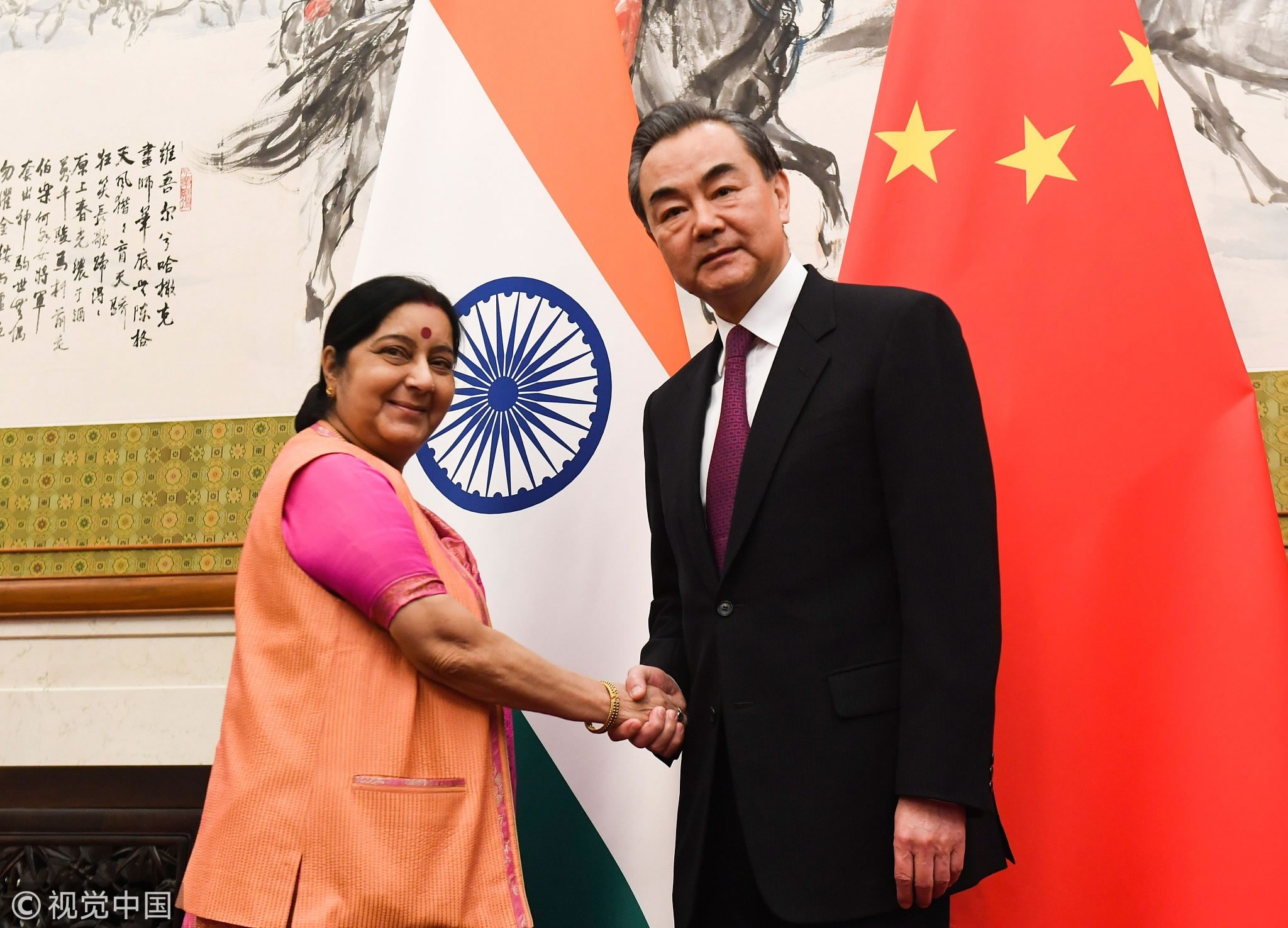
Opinions
15:37, 25-Apr-2018
India, Pakistan join SCO: What does this expansion mean?
CGTN

The Qingdao SCO summit has attracted particular attention as a result of the participation of the leaders of India and Pakistan as full members for the first time.
"The enlargement will certainly bring value to SCO in terms of maintaining regional peace and strengthening economic cooperation," Chen Yu, assistant research fellow at China Institute of Contemporary International Relations, told CGTN.

Signing protocol at a meeting of defense ministers of the Shanghai Cooperation Organization (SCO) member states in Beijing, April 24, 2018./VCG Photo
Signing protocol at a meeting of defense ministers of the Shanghai Cooperation Organization (SCO) member states in Beijing, April 24, 2018./VCG Photo
Chen pointed out that there are many benefits that can be reaped from the expansion. Accepting India and Pakistan's membership will aid the SCO to gain influence in the region and even the world. The SCO will be capable of contributing more to regional peace and encourage economic cooperation. Pakistan, for example, is very influential in Afghanistan. A Pakistan membership will bring great benefits, such as structure and stability to Afghanistan and even central Asia.
"The SCO creates a new platform for China to combat terrorism in central Asia through cooperation with Pakistan," Chen says. Apart from assistance brought by Pakistan with regards to the Afghanistan issue, Chen reckons that the public in Pakistan will definitely benefit from the SCO via a more powerful economy and improved infrastructure.

Indian External Affairs Minister Sushma Swaraj (L) and Chinese State Councilor and Foreign Minister Wang Yi shake hands ahead of their talks in Beijing, Apr. 22, 2018./VCG Photo
Indian External Affairs Minister Sushma Swaraj (L) and Chinese State Councilor and Foreign Minister Wang Yi shake hands ahead of their talks in Beijing, Apr. 22, 2018./VCG Photo
Although the SCO will certainly reap rewards from gaining a larger membership base, there are few challenges that can also come up. Chen states that the SCO proposes principles of mutual trust, mutual benefit and mutual respect, designed to encourage its members to deal with regional affairs by negotiation. "Given the long-term disputes between India and Pakistan as a result of territory and religions, I am afraid that their divergences will be detrimental to the principle of solving problems through negotiation," Chen said.
Furthermore, a bigger SCO may make economic cooperation among its member states more complicated. Although Pakistan has always advocated the Belt and Road Initiative, India still hasn't actively partaken. Chen worries that India may hold back economic cooperation as an SCO member.
Other potential challenges for SCO members brought by the expansion is how this may potentially cause difficulties in organizational works. For instance, India proposes to add English as one of the official languages on the board, but this may prove controversial with members questioning why it is necessary to use English as an official language in an organization that is primarily made up of none-English speaking countries, Chen argues.
"Regardless of all these challenges, a bigger SCO will be a better SCO in the long run," Chen said.

SITEMAP
Copyright © 2018 CGTN. Beijing ICP prepared NO.16065310-3
Copyright © 2018 CGTN. Beijing ICP prepared NO.16065310-3